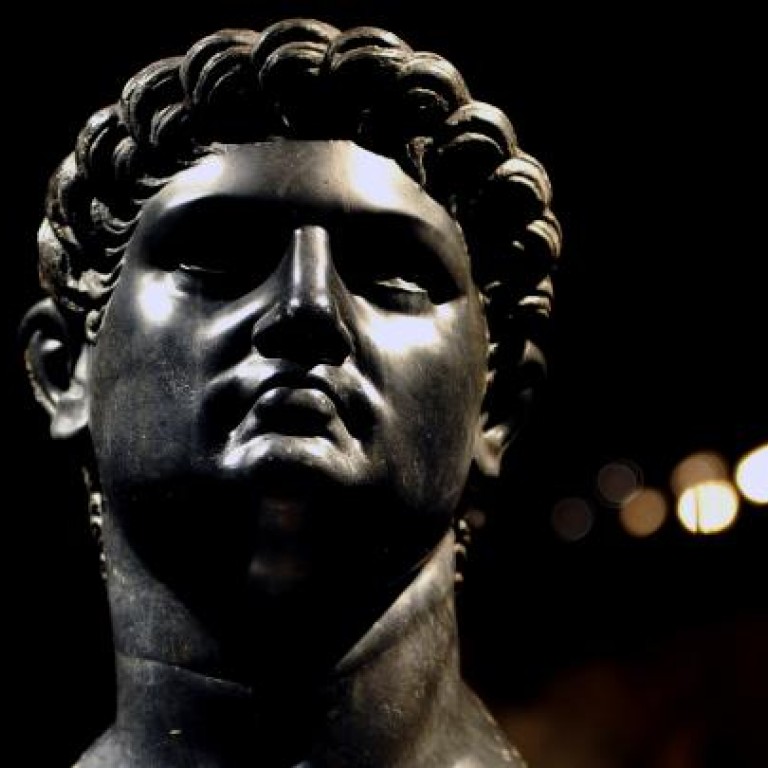
What Nero's life tells us about the origins of CY's integrity crisis
Angelo Paratico says a re-evaluation of Nero's life throws light on contemporary local politics
Few figures have been more vilified and loathed throughout history than the Roman Emperor Nero, whose 14-year reign, almost 2000 years ago, has been portrayed as the epitome of tyranny and immorality.
It is from the historians of the period - Tacitus, Pliny and Suetonius - that we get most of what we know about him. They presented him as a bloody and sleazy pervert, a fool, a sodomite, a dreamer, a vain and hopeless artist. Down the centuries, he had been accused - and condemned without appeal - of having murdered his mother, Agrippina; of killing his pregnant wife, Poppaea, by kicking her; of poisoning his adopted father and brother; of the senseless execution of Octavia, his adopted sister and first wife; and of having ordered his teacher, the philosopher Seneca, to commit suicide.
To top it off, he had Rome burned down in the year AD64, fiddling while looking at the flames engulfing the city, just to prove an able architect in rebuilding it, which he did. He then accused Christians of causing the fire and had them tortured and killed.
He ordered the construction of illegal structures (at least they were declared illegal later and taken care of): roads, tunnels and his magnificent palace, the Domus Aurea, later buried under rubble by Emperor Trajan, with an artificial lake in front of it, right where the Colosseum today stands.
It's a good story, so good that it has been made into plays and films and represented in paintings. The trouble is that a great deal of it just isn't true. It isn't credible that Nero set fire to Rome or that he sent thousands of Christians to their death: there were few Christians in Rome at the time. Current historical thinking is that he didn't kill his adopted father and brother; nor did he mortally wound his wife, Poppaea. Nero wasn't perfect, but then neither were those around him: Seneca was a ruthless loan shark and Nero's mother, Agrippina, was a power-hungry serial killer.
How did we end up with this compelling narrative, convenient and useful to many through the ages, but one which is ultimately fallacious? As George Orwell put it in : "Who controls the past controls the future; who controls the present controls the past."
Nero aspired to be a populist and an artist, helping the poor, curtailing the power of the oligarchy that controlled the empire. He did not start new wars, and limited gladiatorial games. By doing so, he stepped on some very powerful toes. The owners of these toes reacted angrily, spreading rumours that were picked up by historians like Tacitus and Suetonius who were serving new emperors. The rich set to work to unseat him on moral grounds, their only option. Nero had the blood of Julius Caesar, Augustus, Mark Antony, Agrippa and Germanicus, and that made him a living treasure in the eyes of the people, who worshipped him for that.
The corrupt senatorial class accused Nero of lacking integrity, of degrading his office with his performances: he was singing, acting, racing with chariots. Scandalous indeed! Genocide and oppression of the poor, on the other hand, was quite ordinary to them.
If we analyse the life of Nero dispassionately, we should agree that he was a good emperor. Because of his cheerful ingenuity, he thought that what mattered was to deliver results and to improve the lives of the poor, not make the rich richer.
I imagine you will be shocked to learn that such distortions, of facts being replaced with symbols, are still going on. US President Barack Obama has often been reduced to an almost always inaccurate and misleading symbol by the opposition. Closer to home, Hong Kong's colonial period has become the flashpoint for all kinds of political arguments; the historical reality rarely figures - instead, the symbolism of colonialism is all that matters.
Our own chief executive has also been the victim of a similar process. Do the thousands of hungry poor in Hong Kong - and yes, there still are a great many thousands - care more about some illegal partitions in Leung Chun-ying's private home made before taking office, or about three square meals a day and the chance to educate their children? Some will say that I am missing the point here; and the senators in Nero's time would have said the same. They would have said that what matters above all else is that Nero - and our chief executive - lacks integrity.
But if absolute integrity is what makes a great leader, then perhaps we should source our chief executives from monasteries (which hasn't always worked either).
Our soi-disant Hong Kong democrats currently claiming the high moral ground may also, if put under a similar spotlight, have their dirty little secrets. They have made their point clear and the unseating of the emperor has failed. It is time to turn the page, otherwise people may think that they are serving their own vanity, not the welfare of the people of Rome, pardon, of Hong Kong.
